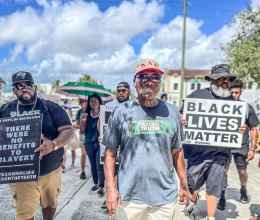
State laws require eligible voters who are detained in jail to be able to cast a ballot. People who are in jail are often awaiting trial, conviction, or are being held for misdemeanor crimes. In Florida, as in most states, people who are detained in jail are eligible to register and vote, and no eligible voter should be denied their right. Yet there is a sharp difference between being simply eligible to vote or register and being able to make one’s voice heard.
In 2020 and 2021, All Voting is Local Florida and the ACLU of Florida teamed up to assess how difficult it is for eligible voters in Florida jails to cast a ballot. We wanted to know: Did county jails have policies and procedures to facilitate the voting and registration of eligible voters in jails, and did they cooperate with volunteers who sought to provide those services?
We found that most counties have no written policies to facilitate elections in jail. Even for those that do have policies, important steps or details are missing.
Formal policies for voting procedures in jails are crucial. These policies provide a written affirmation that most people who are in jail have the right to vote and that the staff at jail facilities are held accountable to protect that right. Without codified policies and practices, counties risk inconsistent and unfair approaches, as well as constitutional violations.
Having written policies in place is the first step toward ensuring long-term voting access. There are no uniform procedures for voting in jail in Florida, and no jails have codified procedures for collaborating with third-party voter registration organizations.






